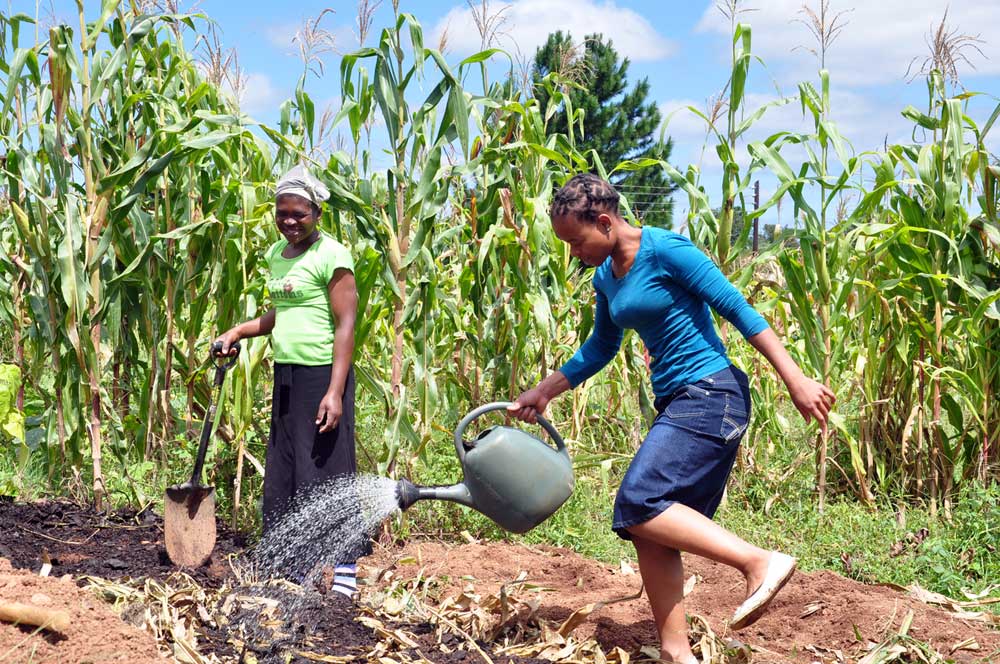The food security pilot project implemented by The Ivory Foundation in Southern Africa, includes experiments in a community garden in the HIV-positive patients Fundsiza Live support group.

This garden is self-managed by a group of HIV+ women trying to support their families throught income generting activities. They are also raising awareness and provide assistance to people who have been tested HIV + and are in need of a financial or emotional support.
The person responsible of the group participated in a training in the Botswana University of Agriculture. The purpose of this training was to acquire agricultural practices to significantly increase yields in small scale gardens, while preserving the environment. The focus of these methods is the creation a very fertile soil and water efficient, only using available resources.
The practices learned were immediately applied in the Community Garden of Fundsiza Live. The experiments aim to find the best combinations of natural fertilizers (such as Biochar or Bokashi) and the associations of the most productive crops (such as Milpa).
Other community gardens in Botswana also benefit from this program, as Tsetseng and Ghanzi.

Biochar : soil amendment obtained by the carbonization of vegetable waste. It has the power to significantly improve soil quality, and regenerate degraded soils. Due to its porous structure, it has the ability to attract and retain water. Biochar is also an approach to carbon sequestration because it has the ability to store large amounts of greenhouse gases in the ground for centuries, potentially reducing or stalling the growth in atmospheric greenhouse gas levels. It is also an interesting solution for managing plant waste.
Bokashi: Korean soil amendment made from a preparation of fermented plant juices.
Milpa: The joint culture of three companion plants traditionally practiced by various Amerindian ethnic groups: squash, maize and climbing beans.
This combination also called “three sisters” has several advantages that benefit the culture of each: corn plants serve as support for climbing beans, and the beans fix nitrogen benefiting to the growth of corn.
